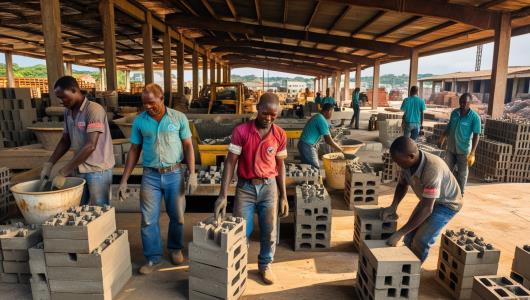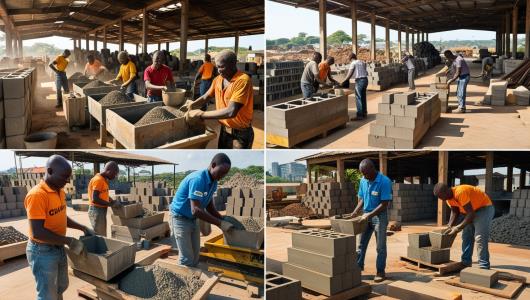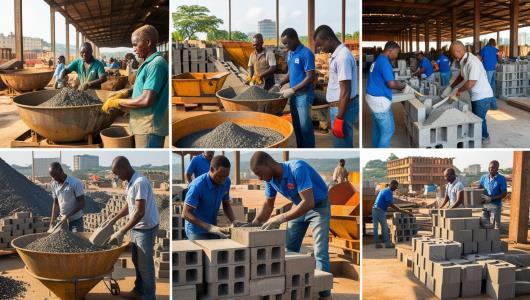Factors affecting block prices in Ghana

Block prices in Ghana can vary widely based on location, size, and type of property. Generally, in urban areas like Accra, prices for residential plots can range from a few thousand to several hundred thousand Ghanaian cedis.
In more rural areas, prices are typically lower. It’s best to check local real estate listings or consult with a local agent for the most accurate and up-to-date information.
As of recent estimates, the price for a 6-inch concrete block in Ghana typically ranges from about 3 to 5 Ghanaian cedis per block, depending on the location and the supplier. Prices may vary based on factors such as the quality of materials and delivery charges. For the most accurate pricing, it’s advisable to check with local suppliers or construction companies.
*********************************
Please subscribe to our YouTube channel
https://www.youtube.com/@Strathium
for Property related videos
Renting | Sales | Construction | Real Estate Investment
*********************************
Several factors can influence block prices in Ghana:
-
Material Costs: The price of raw materials (cement, sand, gravel) directly affects block prices. Fluctuations in these costs can lead to changes in the final price of blocks.
-
Labor Costs: Wages for workers involved in the production of blocks can impact overall pricing. Increases in labor costs can lead to higher block prices.
-
Location: Prices can vary significantly between urban and rural areas due to transportation costs, demand, and local market conditions.
-
Demand and Supply: High demand for construction materials can drive prices up, especially in areas experiencing rapid development.
-
Quality and Type: Different types of blocks (e.g., standard, hollow, or specialized blocks) have varying production costs, affecting their pricing.
-
Regulatory Costs: Government regulations and taxes can also influence prices, particularly if there are new fees or compliance costs for manufacturers.
-
Transport Costs: The distance from the manufacturing site to the delivery location can add to the overall cost of blocks.
-
Seasonality: Demand for building materials can fluctuate with the construction season, affecting availability and pricing.


Considering these factors can help understand the market dynamics for blocks in Ghana.
“Inflation is when you pay fifteen dollars for the ten-dollar haircut you used to get for five dollars when you had hair.
”
–
Sam Ewing
Summary
Block prices in Ghana are influenced by several key factors, including the costs of raw materials like cement and sand, which fluctuate based on market conditions. Labor costs also play a role, as increases can lead to higher production expenses. The location of production affects transportation costs and availability, while demand and supply dynamics in both urban and rural areas can drive prices up or down.
Additionally, the quality and type of blocks, regulatory fees, and seasonal variations in construction activity contribute to the overall pricing landscape.
Software Architect, Real Estate Agent, Blogger & Entrepreneur
21 October 2024
1016 views
Do you have an article to publish?